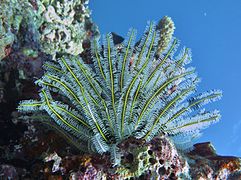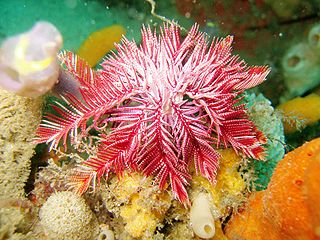
Articulata are a subclass or superorder within the class Crinoidea, including all living crinoid species. They are commonly known as sea lilies or feather stars. The Articulata are differentiated from the extinct subclasses by their lack of an anal plate in the adult stage and the presence of an entoneural system. Articulata first appeared in the fossil record during the Triassic period although other, now extinct crinoid groups, originated in the Ordovician.
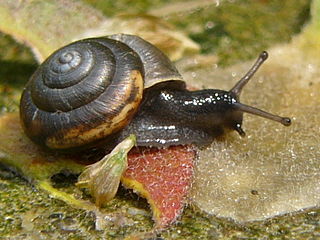
Hygromiidae is a taxonomic family of small to medium-sized air-breathing land snails, terrestrial pulmonate gastropod mollusks in the superfamily Helicoidea.
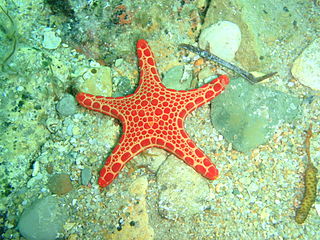
Goniasteridae constitute the largest family of sea stars, included in the order Valvatida. They are mostly deep-dwelling species, but the family also include several colorful shallow tropical species.

Comasteridae is a family of crinoids.

Cidaridae is a family of sea urchins in the order Cidaroida.
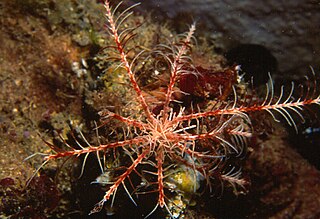
Antedonidae is a family of crinoids or feather stars in the phylum Echinodermata. Members of the family are unstalked and have ten feathery arms. They can move about freely and have clawed cirri to attach them temporarily to structures.

Capillaster is a genus of crinoids. It contains the following species:

Charitometridae is a family of crinoids or feather stars in the phylum Echinodermata.

Davidaster is a genus of crinoids. According to the World Register of Marine Species, a number of species that originally were included in the genus Nemaster are now included in Davidaster. Members of this genus have wedge-shaped arms, except for the basal ones, often longer than they are wide. The mouth is off centre and there are no pinnule combs after pinnule 3. The primary comb has the teeth widely separated and confluent with the lateral edge of the segment.

Comaster is a genus of crinoids.
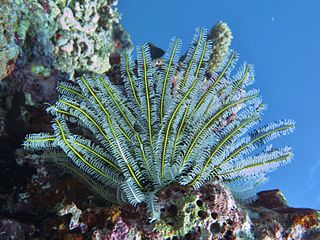
Comaster schlegelii, the variable bushy feather star, is a crinoid in the family Comatulidae. It was previously classified as Comanthina schlegeli but further research showed that it was better placed in the genus Comaster. It is found on shallow water reefs in the western Pacific Ocean.

Oxycomanthus bennetti, the Bennett's feather star, is a species of crinoid belonging to the family Comatulidae. It is found in shallow water in the Indo-Pacific between northern Australia and southeast Asia.

Oxycomanthus is a genus of crinoids belonging to the family Comatulidae.
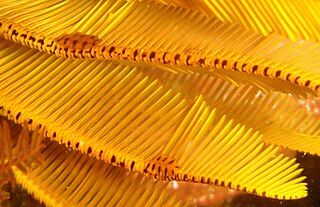
The elegant feather star is a species of crinoid in the family Tropiometridae.

Isselicrinidae is one of four extant families of crinoids in the order Isocrinida.

Bathycrinus is a genus of crinoids.
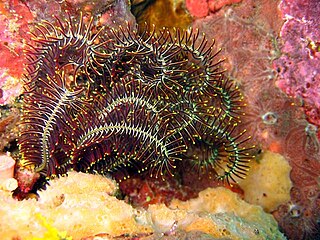
Clarkcomanthus is a genus of echinoderms belonging to the family Comatulidae.

Comanthus is a genus of crinoid echinoderms belonging to the family Comatulidae.
Annametra is a genus of crinoids in the family Antedonidae, subfamily Antedoninae, first described by Clark, A. H. in 1936.






